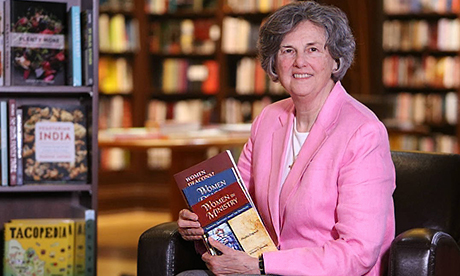Predictably, the anti-Pope Francis media giant, Eternal Word Television Network, and its subsidiaries give airtime to synod critics, including some who pass along false “facts” about things discussed and proposed.
One programme has an American host who smirks at the concept of spiritual conversation.
On the other side of the street, more liberal Catholic media focus on questions of including people in the church, be they gay, poor, Indigenous, female, migratory or divorced.
Some are more interested in only one position; a few cover them all.
To feed the stories, various lobbying efforts set up in Rome join one side or the other, presenting conferences, position papers and books on their topics.
For example, in a public theatre at an event called “The Synodal Babel,” American Cardinal Raymond Burke, a fierce critic of Pope Francis, read a long argument against the synod itself.
Meanwhile, at an event billed as “Spirit Unbounded,” Benedictine Sister Joan Chittister and former President of Ireland Mary McAleese called for equality in all areas of church life and practice.
And then there are books to add to the excitement.
One, by two Latin American activists and printed in eight languages by The American Society for the Defense of Tradition, Family and Property, or TFP, calls the synod a Pandora’s box.
The English edition’s foreword is by Burke. The book recounts with horror that women have asked to join church governance and ministry.
A book called “Credo” by another Francis critic comes with an imprimatur from American Bishop Peter Libasci, who is currently the subject of an abuse investigation.
Written by Athanasius Schneider, an auxiliary bishop in Kazakhstan, who has written against both Muslims and Jews, it aims to replace the Catechism of the Catholic Church.
Unsurprisingly, it presents demonstrably false information about the history of women ordained as deacons and denies the authority of the pope to admit women to official lay ministries.
The back-and-forth is dizzying, and it will not end soon.
The synod is the synod. Parts of the Catholic world are involved. Some are not.
More speeches and more documents will create more controversy.
More anger and more division will cause louder calls for or against one or another issue, which is the opposite of what the synod is supposed to do, which is to resolve differences and make plans to move forward in peace.
Above all the noise, Pope Francis looks outside Vatican walls to a suffering world.
He calls for prayer and fasting for world peace.
He asks for warring nations to stop fighting, to peacefully resolve their differences. He even phoned American President Joe Biden the other day to press the point.
And that is what Francis wants for the church.
- Phyllis Zagano is an author at Religion News Service. She has written and spoken on the role of women in the Roman Catholic Church and is an advocate for the ordination of women as deacons
- First published in Religion News Service. Republished with permission.
